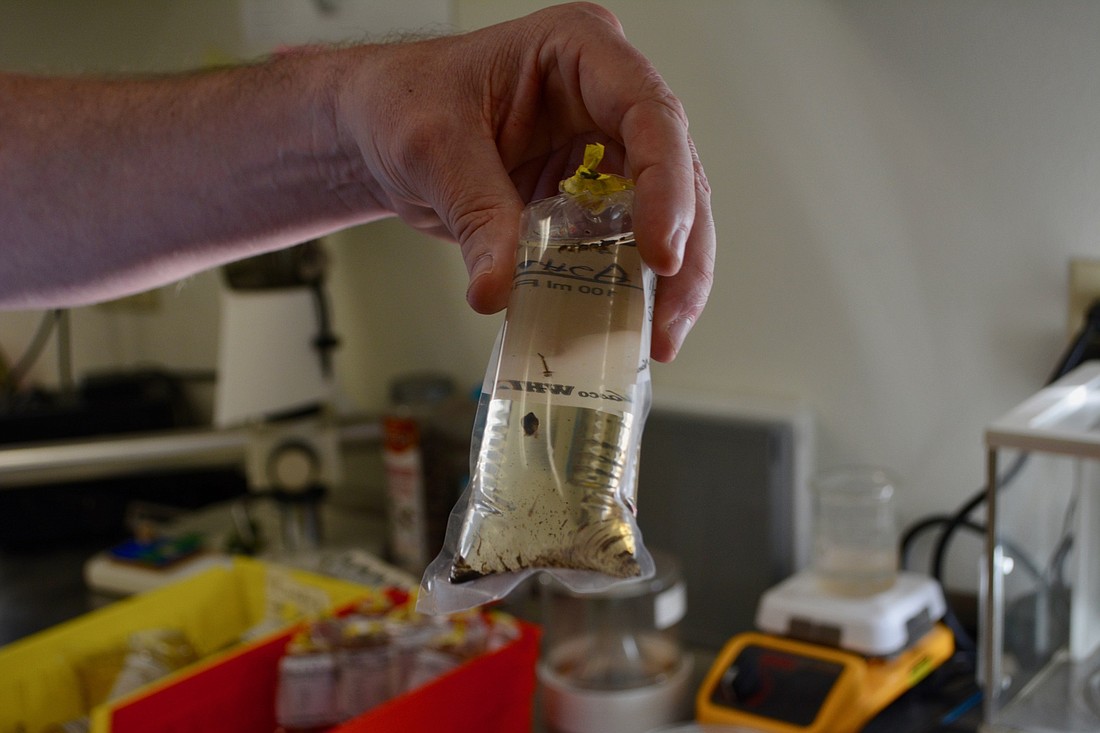- November 24, 2024
-
-
Loading

Loading

Bred in water and nearly inescapable in sweltering heat and humidity, mosquitoes might be described as the bane of a Florida summer.
Recently, however, mosquitoes haven’t just incited feelings of frustration; rather, they’ve also raised concern despite the season.
Christina Smith decided to reach out to county officials when she felt the health of her neighbors might be at risk. Specifically, she said she started noticing increased mosquito activity in the Siesta Key Beach parking lot before Christmas — an unusual time for the pests.
After doing some digging, she learned that West Nile Virus, a type of mosquito-borne disease, was present in certain sentinel chickens throughout the year of 2018. Those two facts triggered her alarm.
“There must be a reason for the increases in these high numbers of disease in Sarasota as per the [Centers for Disease Control and Prevention] report, and why the mosquitoes are allowed to grow so big. It’s concerning,” Smith said.
Sentinel chickens are maintained in locations around the county to serve as an early warning system for public health. And while an increase in cases of West Nile in the chickens is cause for concern, it’s not as bad as it seems, said Chuck Henry, a spokesman for the Florida Department of Health.
“West Nile, particularly, has a normal bird-mosquito cycle,” he said. “That’s how it exists in the world. People don’t like to hear it but, like many diseases, there’s always a level out there present in our community.”
Moreover, he said that no sentinel chickens in the Siesta Key area have tested positive for years.
Wade Brennan, Sarasota County Mosquito Management biologist and manager, said records detail a recent upswing in sentinel chickens testing positive for West Nile: 11 in 2016, 54 in 2017 and 74 in 2018 countywide. And estimated mosquito populations are falling. The county maintains a flock of 78 chickens split up into 13 locations, both rural and urban.
In Florida, 35 cases of the disease were reported in people in 2018.
None were in Sarasota County. Symptoms of West Nile Virus include high fever, stiff neck, headache and confusion.
“In Sarasota, there are over 30 species of mosquitoes, and not all of them can transmit disease. There’s a difference between the viral levels we’re detecting in our surveillance program and translating that to when it becomes a threat to humans,” Henry said. “If you take the eight or so that transmit disease out, the rest don’t transmit any disease but can be pests and can cause grief. Some are aggressive biters, even though they’re not a disease risk.”
Mosquito Management’s job is to monitor those levels of mosquito-borne diseases in sentinel chickens and use that information to pinpoint locations for mosquito spraying. They also spray areas that receive enough complaints about mosquitos from the community.
In terms of typical maintenance, Brennan said that mosquito spraying is not done in regular, frequent intervals across the entire county because the chemicals can be harmful to the environment. Instead, they use trucks or airplanes to spray large swaths of land once mosquito complaints are reported in an area. Then, they check back in to make sure the treatment was effective.
Otherwise, Mosquito Management is not sounding any alarms over West Nile Virus or any other mosquito-borne illness.
“We typically will leave an advisory in place until the season ends,” Henry said, adding levels of virus detection haven’t been high enough to be concerning since summer.